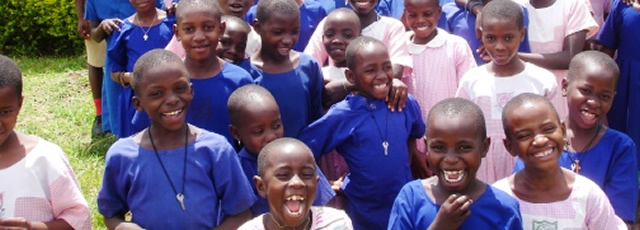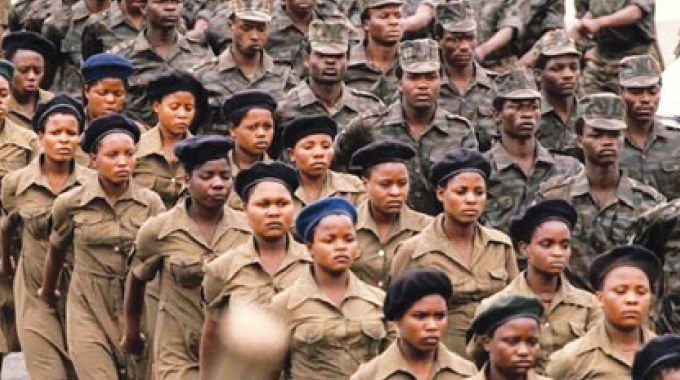Relief for Binga school girls

 Tapfuma Machakaire
Tapfuma Machakaire
“We need time to rest, to play and to visit friends.”
This is the silent and salient call from the girl child in Binga, one of the poorest districts in Matabeleland North Province of Zimbabwe who is finding it tough to combine school work and household chores after walking long distances to and from school every day.
While there may be similarities in the nature of challenges that the girl child in Zimbabwe is experiencing particularly in accessing education, in Binga the challenges are exacerbated by the long distances that the children have to walk to school and still be expected to perform the usual household chores in addition to attending to daily school work. Some of the children walk distances of up to twenty kilometres to and from school daily and often this discourages them from continuing with education leading to a high number of drop outs and early marriages.
The message from these young girls, however, appears to have been captured by well wishers who have teamed up with the Ministry of Primary and Secondary Education and Ministry of Women Affairs, Gender and Community Development in creating a project known as Improving Girls Access Through Transforming Education (IGATE) that is addressing the barriers to education for the disadvantaged young girls in Binga and other parts of Zimbabwe.
According to Craig Geddes, IGATE consortium leader, the project would increase girls’ understanding of their own potential, power, capacity and knowledge.
It would also ensure that schools are girl-friendly places of education and that religious and traditional leaders understand and support the importance of girls’ education.
A needs assessment conducted prior to the launch of the IGATE project at the beginning of this year revealed that economic indicators in Binga district are some of the lowest with poverty rations being some of the highest contributing to high malnutrition rates, low income generation and very low adherence to services due to lack of capacity.
The report notes that school drop out in the district for girls in 2013 was 5.4 percent for girls and 0.7 percent for boys. It further points out that due to high demands, household chores compete with girls’ time for education.
Among the top three barriers for girls’ education were long distances to schools. It is further stated in the report that only 17 percent of households in Binga own any form of transportation with the average time it takes to walk to school in some wards being as high as 46 minutes each way.
IGATE is thus making strategic partnerships with school development committees, mothers’ groups, traditional leaders, local community structures, religious bodies and Great Zimbabwe University to help disseminate information on girls’ education and strengthen existing systems.
“IGATE will be focusing on a variety of key emerging trends in gender programming, highlighting gender disparities, the effects of marginalisation, religious beliefs, sanitation practices and innovations in income generation and group empowerment,” said Craig.
To address the issue of long distances to school the project had partnered with World Bicycle Relief (WBR) under the Bicycle Education Empowerment Programme (BEEP) and were providing Buffalo bikes specifically designed for rural terrain.
Craig said under the BEEP model IGATE would in two years, be distributing about 22,000 bicycles to girls and boys, school leadership and IGATE trained mechanics in the proposed districts.
Selection of beneficiaries was being done through a community driven process operated by newly formed bicycle supervision committees and would be based on distances and economic needs.
“IGATE is working directly with the Ministry of Primary and Secondary Education and local community leadership to ensure the intervention works directly to respond to this important barrier within the targeted communities,” said Craig.
The programme is also working with faith group leadership structures to improve their engagement with development actors, increase their knowledge on the importance of key attitudes and behaviours and to reduce negative practices that are impacting girls, women, families and communities.
This followed research that showed that Apostolic and Zionist girls preferred to be married at an early age due to historical and religious beliefs. The girls also opted to enter into polygamous marriages as they believed these had low levels of physical abuse by the husbands.
Craig said the IGATE advocacy meetings were being held with gate keepers – sect leaders – in the Apostolic and Zionist faith sects encouraging them to understand positive practices, eliminate harmful practices that expose women and girls to abuse and violation.
Siphiwe Siyakakowa, the IGATE Education Programme facilitator for Binga, said she was working with 29 schools covering the whole district. She says a total of 1,500 bicycles have so far been distributed in Binga under the Beep Programme.
“It is a very important component in the education sector which is set to improve the pass rate in the district as children are now getting to school on time and even some children who had dropped out have re-enrolled after they heard of the programme,” said Siyakakowa.
She said the programme is part of the six models that IGATE was engaged in in Binga which include village savings through which parents of children under the BEEP programme are empowered, mothers’ groups, training of school development committees and the water and sanitation programme in the schools and encouraging parents to take part in all school activities.
Overally, the IGATE program which had been introduced in Matabeleland North and South, Midlands and Masvingo provinces is working in 467 communities targeting improved learning outcomes for close to 49,000 girls, increased financial assistance to 25,000 parents through savings and lending groups, improved awareness and education for parents through mothers’ groups, improved school development management capacity for about 4,700 school development committee members.











Comments